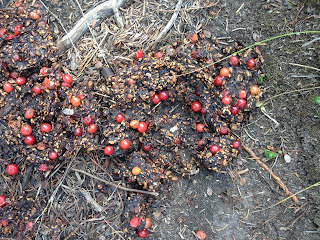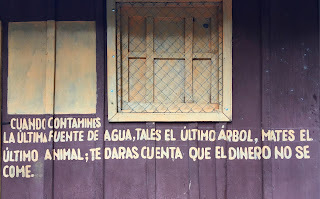salmon
∞
On Paying Attention To Bear Poop - My recent TEDx talk in Fargo
My TEDx talk in Fargo, summer 2019. It's about bear poop, and other things you don't need to know.
The allegedly unnecessary things - like bear poop, and poetry - are often the things you most need to know.
I'm grateful to my friend Greg and his team for making this possible. I had no plans ever to do a TEDx talk until I met Greg through some mutual friends. We were having coffee here in Sioux Falls a few years ago, and I said something about the ecology of fish and forests. It must have resonated with Greg, because when I was done, he said "You should come to Fargo to give a TEDx talk!"
Some of the best things happen when you take time to have a cup of coffee or tea with friends, or when you meet new people, or when you find some bear scat on a trail by a river. Each of these things can be the prompting of a new thought, the spoor that shows you a new path.
The allegedly unnecessary things - like bear poop, and poetry - are often the things you most need to know.
I'm grateful to my friend Greg and his team for making this possible. I had no plans ever to do a TEDx talk until I met Greg through some mutual friends. We were having coffee here in Sioux Falls a few years ago, and I said something about the ecology of fish and forests. It must have resonated with Greg, because when I was done, he said "You should come to Fargo to give a TEDx talk!"
Some of the best things happen when you take time to have a cup of coffee or tea with friends, or when you meet new people, or when you find some bear scat on a trail by a river. Each of these things can be the prompting of a new thought, the spoor that shows you a new path.
∞
Bristol Bay and Pebble Mine: Mutual Flourishing or Midas' Touch
My latest article on salmon and mining was just published in Ethics, Policy, & Environment. A proposed gold mine in Alaska offers a lot of financial wealth, but it also poses significant risk of environmental loss to the salmon population downstream, and to everything that depends on the salmon for food.
In this brief commentary I argue that we should prefer long-term mutual flourishing over the prospect of short-term financial gain for a few. The myth of King Midas offers an illustration of what is at risk: the gleam of gold can blind us to the importance of being good stewards of nature, and of being good neighbors and good ancestors:
It reads "When you pollute the last source of water, cut down the last tree, and kill the last animal, you'll realize that you can't eat money."
It would be good to learn that lesson before it's too late for the salmon - and for everything that depends upon them.
You can read my article here.
In this brief commentary I argue that we should prefer long-term mutual flourishing over the prospect of short-term financial gain for a few. The myth of King Midas offers an illustration of what is at risk: the gleam of gold can blind us to the importance of being good stewards of nature, and of being good neighbors and good ancestors:
"Not all mining is bad, but to choose a mine that offers gold in exchange for life and mutual flourishing is to display a clear symptom of Midas’ malady. In the ancient myth, King Midas wished for the power to turn all he touched into gold. Half a trillion dollars in ore under the tundra might make us forget what Midas suffered when his wish was granted: he gained great wealth at great cost. When he reached out for food, it turned to inedible gold in his hand. In the case of the Pebble Mine, the risk is not to the PLP, but to the people who are sustained by a four-thousand-year-old tradition of salmon harvesting, and to all the other birds, animals, and plants that depend upon the salmon."I'm reminded of a hand-painted sign I recently came across at a ranger station in El Zotz in Guatemala's Maya Biosphere Reserve.
It reads "When you pollute the last source of water, cut down the last tree, and kill the last animal, you'll realize that you can't eat money."
It would be good to learn that lesson before it's too late for the salmon - and for everything that depends upon them.
You can read my article here.

